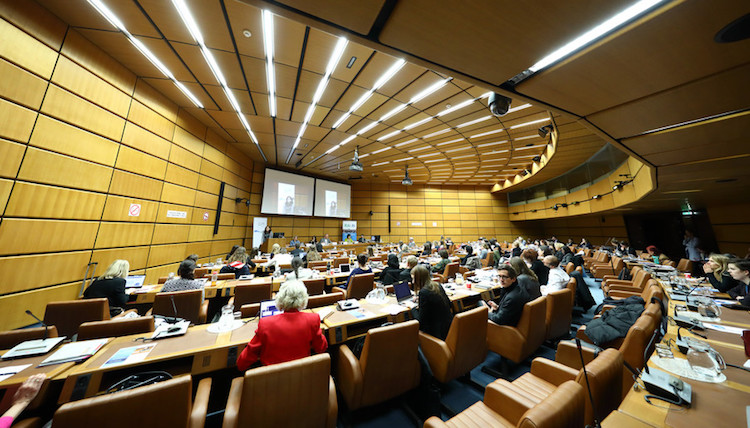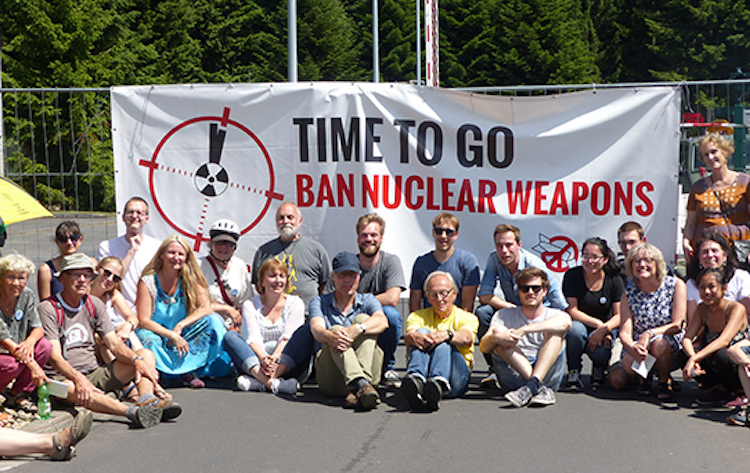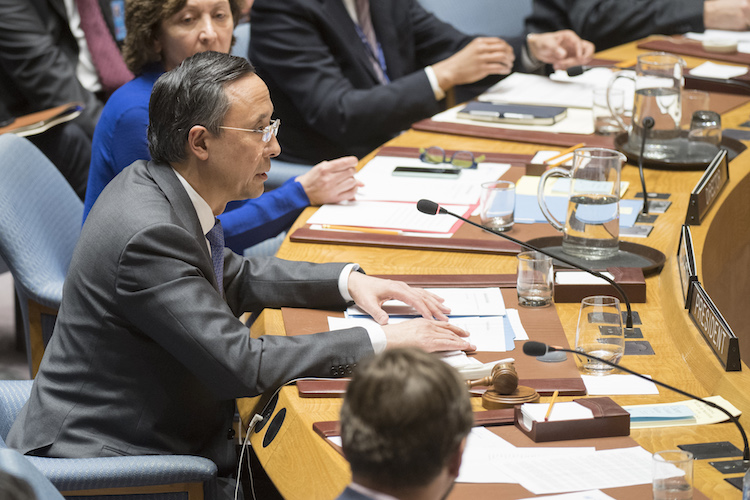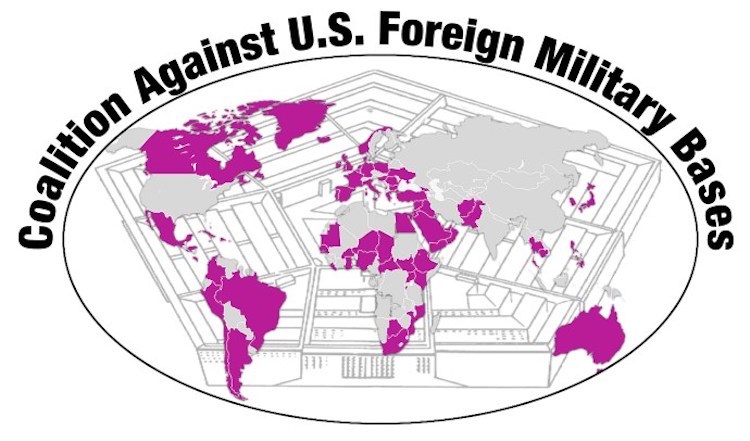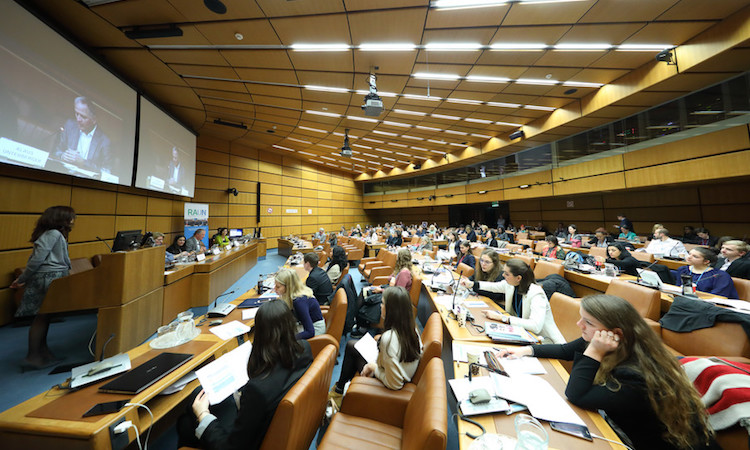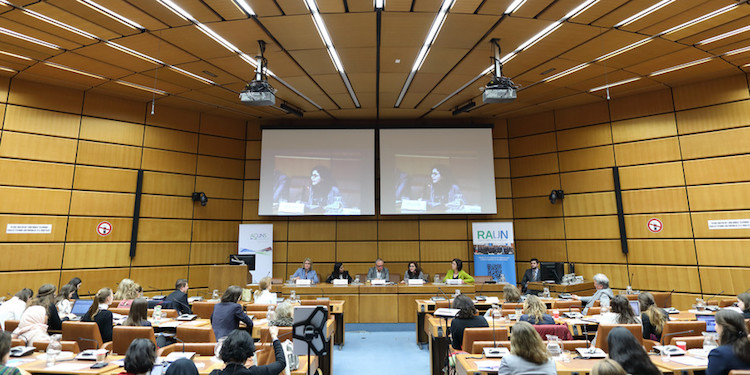By Darline Giraud* This is the fourth in a series of reports on the Vienna UN Conference from January 10-12, 2018, which discussed actions and challenges linked to the Sustainable Development Goals, particularly 5 (SDG 5) and in the spirit of SDG 17. The Vienna Liaison Office of the Academic Council on the United Nations […]
Nuclear-Weapons Ban Will Help Usher In Peace, Human Rights
By Jamshed Baruah NEW YORK | TOKYO (IDN-INPS) – Eminent Buddhist philosopher Daisaku Ikeda, president of the Soka Gakkai International (SGI), has welcomed the July 2017 adoption of the Treaty on the Prohibition of Nuclear Weapons (TPNW) as a turning point in the global history of efforts to achieve peace and disarmament, emphasizing that while […]
Doomsday Clock Warning Makes UN High Level Conference Even More Important
By Alyn Ware* NEW YORK (IDN) – The Bulletin of the Atomic Scientists moved the hands of the symbolic Doomsday Clock to 2 Minutes to Midnight, on January 25, indicating that the threat of a nuclear war through accident, miscalculation or intent has risen to an alarming level, and that climate change is not being […]
Renewed Efforts to Develop Renewable Age Grip East Africa
By Justus Wanzala NAIROBI (IDN) – Heightened demand for energy, a shift in policy and the emergence of viable entrepreneurial innovations are propelling transition to sustainable energy in the East African region. This emerged during a two-day conference organised by Kenya’s Strathmore University‘s Energy Research Centre (SERC) in partnership with Renewable Energy Solutions for Africa […]
Security Council Aims at a World Free of Violent Conflicts by 2045
By J Nastranis UNITED NATIONS (IDN) – As conflicts escalate in different geographic areas all over the globe, the 15-nation Security Council has underlined an urgent need for redoubled efforts for their prevention and resolution, addressing where appropriate the regional dimensions of conflicts with specific emphasis on regional diplomacy and arrangements. The Council has primary […]
‘Smart Farms’ Making Thai Agriculture Sufficient and Sustainable
By Kalinga Seneviratne This article is the 20th in a series of joint productions of Lotus News Features and IDN-InDepthNews, flagship of the International Press Syndicate. CHANTHABURI, Thailand (IDN) – Thai farmers are going back to basics under a “Smart Farms” formula supported by modern information communication technology (ICT) integrated into a Buddhist concept of ‘sufficiency economy’ to […]
G-77 at UN to Focus on Global Solidarity and Multilateralism
By Ramesh Jaura GENEVA | NEW YORK (IDN) – The Group of 77, comprising 134 developing and newly industrialized countries, has set itself six priorities for 2018 during the presidency of Sameh Hassan Shoukry, the Minister of Foreign Affairs of Egypt. These are closely related to the eradication of poverty in all its forms and […]
US Military Bases Devastating Communities Across the World
By Alice Slater* This article was originally published in The Nation on January 24 with the caption: ‘The US Has Military Bases in 80 Countries. All of Them Must Close.’ It is being reprinted with their permission. NEW YORK (IDN-INPS) – On the weekend of Martin Luther King Day (January 15), Baltimore University fittingly hosted […]
Women and Water Inseparable for Sustainable Development
By Krista Price* This is the third in a series of reports on the Vienna UN Conference from January 10-12, 2018, which discussed actions and challenges linked to the Sustainable Development Goals, particularly 5 (SDG 5) and in the spirit of SDG 17. The Vienna Liaison Office of the Academic Council on the United Nations […]
Bodies as Battlefields – Dangers Women Face During Conflicts
By Julia Zimmerman* This is the second in a series of reports on the Vienna UN Conference from January 10-12, 2018, which discussed actions and challenges linked to the Sustainable Development Goal 5 (SDG 5) and in the spirit of SDG 17. The Vienna Liaison Office of the Academic Council on the United Nations System […]

